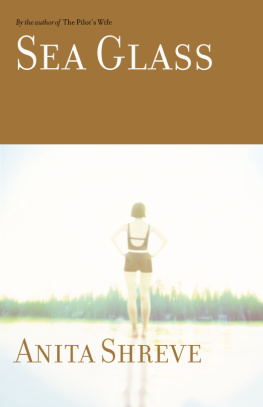Anita Brookner - Brief Lives
Here you can read online Anita Brookner - Brief Lives full text of the book (entire story) in english for free. Download pdf and epub, get meaning, cover and reviews about this ebook. year: 1992, publisher: Vintage, genre: Non-fiction. Description of the work, (preface) as well as reviews are available. Best literature library LitArk.com created for fans of good reading and offers a wide selection of genres:
Romance novel
Science fiction
Adventure
Detective
Science
History
Home and family
Prose
Art
Politics
Computer
Non-fiction
Religion
Business
Children
Humor
Choose a favorite category and find really read worthwhile books. Enjoy immersion in the world of imagination, feel the emotions of the characters or learn something new for yourself, make an fascinating discovery.
- Book:Brief Lives
- Author:
- Publisher:Vintage
- Genre:
- Year:1992
- Rating:3 / 5
- Favourites:Add to favourites
- Your mark:
- 60
- 1
- 2
- 3
- 4
- 5
Brief Lives: summary, description and annotation
We offer to read an annotation, description, summary or preface (depends on what the author of the book "Brief Lives" wrote himself). If you haven't found the necessary information about the book — write in the comments, we will try to find it.
Brief Lives — read online for free the complete book (whole text) full work
Below is the text of the book, divided by pages. System saving the place of the last page read, allows you to conveniently read the book "Brief Lives" online for free, without having to search again every time where you left off. Put a bookmark, and you can go to the page where you finished reading at any time.
Font size:
Interval:
Bookmark:
BRIEF LIVES
Anita Brookner
JULIA DIED. I read it in The Times this morning. There was quite a substantial obituary, but what immediately fixed my attention was the photograph, one of those studio portraits of the late 1930s or early 1940s, all huge semitransparent eyes, flat hair, and dark lipstick. I never liked her, nor did she like me; strange, then, how we managed to keep up a sort of friendship for so long. Had our husbands not been partners I doubt whether we should ever have exchanged more than a few words, or seen each other on more than a few formal occasions, although we were, for quite some time, in the same line of work. As things turned out we were in fairly close contact and even spent a couple of holidays together, after the war. I can see us now, strolling along Riviera esplanades in white pleated skirts, our husbands chatting behind us. It must be years since I was last in Nice; it holds no pleasant memories for me. Julia was older than me by nearly eleven years, although she never looked it, and had become very arthritic while still in her fifties. Arthritis is a disorder I associate with her particular aquiline beauty, as if there is too little flesh to protect the bones. After Charlie died nobody saw much of her: she stayed at home, in that spacious but chilly flat of hers in Onslow Square, where I visited her sometimes, perhaps not as often as I should have done. She was never pleased to see me: why should she be? In the end I tried to stay away, unsuccessfully, as I did most things. I telephoned her from time to time, out of a dragging sense of duty, and also out of something more complicated, more timorous than pity, grief, perhaps. I realize now that I had not seen her for at least five years. That was why the photograph gave me such a shock.
She had been quite famous in her youth, when presumably the photograph was taken. She had won a reputation as a diseuse and appeared regularly in intimate revues until these things went out of style. People were amused that so obvious an aristocrat should condescend to entertain the public in this manner. That element of condescension in her performances commanded respect, but not in every quarter: when she tried to entertain women in factories in the war years her manner was found to be too snobbish for popular taste. She looked anachronistic in her long dresses, with the chiffon handkerchief tied to the little finger of her left hand: this was an affectation of hers, but it did not go down well when the fashion was for sausage curls shoved under a turban and overalls that tied round the waist. Although she had had a number of lovers, some of them prestigious, others quite shady, Julia never achieved the sort of informality that would have put her on a par with other women and invited the confidences that amused her so much when they came her way. Latterly she was tended by a devoted and rather sickly-looking woman called Maureen who had originally come to interview her for the local paper. Julia never said no to an interview: interviews were her natural mode of communication. There was plenty of room in the flat: no problem there. And Maureen was undoubtedly useful with the shopping and general maintenance of the household. Otherwise, I think I should have called more often. As it was I saw quite a lot of her. In the end Julia gave up doing anything for herself and treated Maureen as a slave. She treated most people like that.
She was not a very nice woman, but then neither am I. We were able to get along because we had a few things in common, principally our husbands, while they were alive, and our experience in the profession, although I always deferred to her on that score. She expected a certain amount of deference. And then we were both good at summing people up: we warmed into life when discussing acquaintances, and she was an excellent mimic. Basically, I found her alarming and she found me boring, yet in our heyday, when we were both married and healthy, it was natural for us to telephone each other two or three times a week. Such conversations as we had were almost entirely inconsequential and in time became more rare. Neither wanted to hear about the other's aches and pains, and widowhood does not exactly increase the number of things one has to talk about. Julia was a stickler for amusement, although she had absolutely no sense of humour: she wanted to be amused all the time. Her category of amusing topics was mainly marital or sexual, who was having an affair with whom, who was divorcing, and why that sort of thing. She could usually say something scurrilous about all the parties involved, this being her idea of amusement. I found such talk distasteful, which was why she found me boring. Most people to her were an audience, and out of a sense of noblesse oblige she would deign to entertain them, but then they were under an equal obligation to entertain her. She would say, 'Let's have a discussion,' when what she meant was, 'Let's have an argument,' for she was restless most of the time. And she liked danger, which was why I found her alarming. Although I had known her for so long I was a little afraid of her, never at ease in her company. And in the end there was every reason why I should feel this way.
Julia was very beautiful, but she was devoid of softness. Her beauty was of a dry immaculate kind, the kind that never deteriorates. She was strikingly tall and slim, and always remained so. Her feet were so narrow that she had always had to have her shoes made. Over the pale blue eyes the eyelids were heavy, and capable of conveying multiple innuendoes, of an unvaryingly derogatory nature. Those eyelids featured prominently in her performances and were the focus of every caricature. I believe I have reason to believe that she was far from sensual by nature, yet she had a number of hard sexy mannerisms: the eyelids, of course, and the bad language that fell constantly from her chiseled lips. I always felt that somewhere in the remote fastness of her being, a long way behind the eyelids, and the ringed hand clutching a glass of whisky, she was a girl, but a girl of a rather lost variety, dreaming, unawakened, incurious, almost pure. Two clues to this: her animation in the presence of her mother (both of them drinking whisky, yet laughing together like schoolgirls) coupled with her devotion to her brother, who had let himself down in various ways, 'poor darling', and who was working as a car salesman; and her habit of placing her underclothes on a chair in her bedroom and covering them with a square of silk reserved for this purpose. Where had such an archaic habit come from? It was common to my mother's generation, but it has rarely survived to the present day, when women treat their bathrooms as their dressing-rooms, and in any event do not leave their clothes lying around.
But then Julia was a strikingly old-fashioned woman. Even at the height of her fame, in the late 40s and early 50s, she appeared to me mature, worldly wise, even perverse, although by today's standards she was still quite young. She dressed like a middle-aged woman, in beautiful severe clothes by Lelong and Patou. She made her comeback, most successfully, in a white dress and turban by Mme Grs . Such elegance inspired respect in those shabby days before the country was on its feet again: one only saw well-dressed women on the stage, which was why so many people went to the theatre. Yet she appeared out of date even to the faithful, the lonely men of the war, the young hairdressers. That was part of her attraction: she incarnated a style which had vanished. In fact Julia was always out of date. She blamed everyone but herself, yet the only time I ever felt pain on her behalf was when I saw those beautiful eyelids lowered and knew in a flash that what she felt was not disdain, as she thought, but incomprehension. The next moment she would be sweeping one into her bedroom, flinging open her many wardrobes and demanding to be told what to wear. She had already made up her mind on this point, and she was never wrong, but she liked to deplore one's own lack of taste in hazarding what she perceived to be a laughable sugge stion. This exchange, which was frequently repeated, was one of a number of rituals by which she reinforced her ascendancy. She was famous for it, as she was famous for most things. 'Oh, Julia,' her friends would laugh. 'Why not go mad for once and make a mistake?' But she never did. She never ever did.
Font size:
Interval:
Bookmark:
Similar books «Brief Lives»
Look at similar books to Brief Lives. We have selected literature similar in name and meaning in the hope of providing readers with more options to find new, interesting, not yet read works.
Discussion, reviews of the book Brief Lives and just readers' own opinions. Leave your comments, write what you think about the work, its meaning or the main characters. Specify what exactly you liked and what you didn't like, and why you think so.

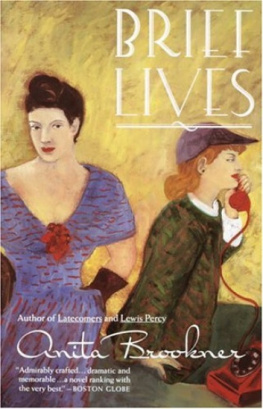
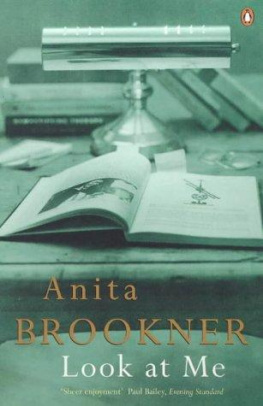
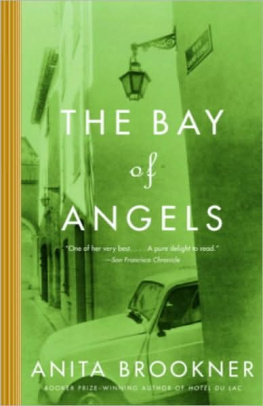
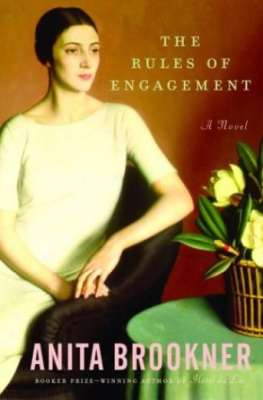
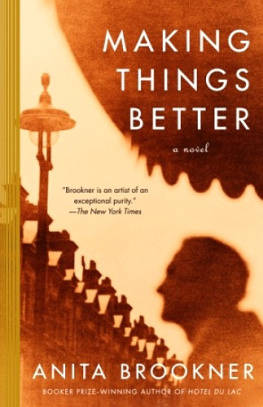

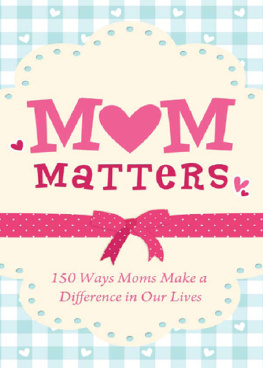
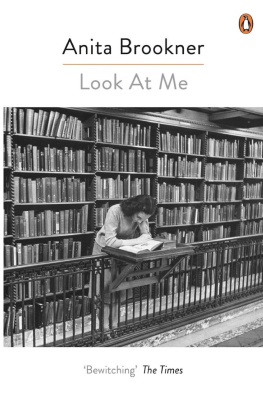
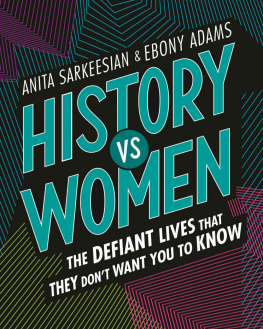

![Anita Anand - The Library Book. Anita Anand ... [Et Al.]](/uploads/posts/book/40194/thumbs/anita-anand-the-library-book-anita-anand-et.jpg)
